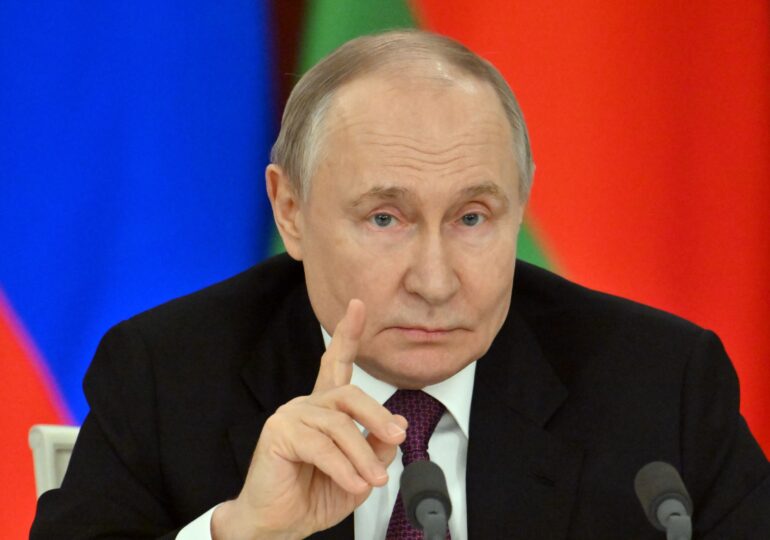For the first time publicly, two high-ranking officials from Russia – Central Bank Governor Elvira Nabiullina and Minister of Economy Maxim Reshetnikov – have sounded the alarm about the state of the Russian economy.
While President Vladimir Putin downplayed the warnings, stating that the economy remains strong despite sanctions and war, analysts believe that the economic reality is much graver than the Kremlin wants to admit, as shown in an analysis published by Kyiv Independent.
Internal reserves, nearly depleted
According to Nabiullina, Russia's economic momentum from the war period is rapidly fading, amid the depletion of essential resources: labor force, industrial capacity, bank capital, and liquid assets from the National Wealth Fund.
Reshetnikov went even further, speaking of approaching a recession and a decisive stage for the Russian economy.
Although Putin insists that everything is fine, the warnings come at a time when the effects of sanctions and excessive military spending are becoming increasingly visible.
Technocrats are allowed to tell the truth - up to a point
In an authoritarian regime like Russia, experts in the economic field have limited freedom of expression, precisely so that the system can function, explains political scientist Ekaterina Schulmann.
They are tolerated to speak the truth about the economy, as long as they stay within their area of expertise. It is precisely this "calculated permissiveness" that makes the recent warnings seem credible.
National Wealth Fund, nearly empty
One of the clearest signs of the crisis is the collapse of liquid assets from the National Wealth Fund - from $107 billion in January 2022 to just $35.5 billion in May 2025.
Former government advisor Vladimir Milov states that the post-invasion "economic miracle" was based solely on spending these reserves. In the absence of foreign investments, everything operates on public funds, which are rapidly diminishing.
Militarized growth, civilian stagnation
The militarization of the economy has led to a defense budget reaching 6% of GDP - the highest level since the Cold War. Economist Andrei Movchan warns that, although military production has artificially inflated economic indicators, it has reached a ceiling, and civilian investments are being sacrificed. Therefore, Russia is heading towards stagnation and recession.
However, he specifies that a total collapse is not imminent as long as global energy prices remain high.
Oil price no longer saves the budget
Although Russia continues to rely on oil exports to finance the war, even the price increases in June are no longer sufficient to balance the budget. Minor price hikes no longer provide financial security for the Putin regime.
The key question, Schulmann warns, is to what extent economic problems can weaken the regime's control.
In an autocratic system, people do not judge power based on legitimacy, but on strength. If clear signals emerge - such as unpaid salaries, empty shelves, lack of utilities - they can be interpreted as signs of weakness. Conversely, a gradual deterioration keeps the population in "individual survival" mode, without seeking culprits, as the publication further indicates.

